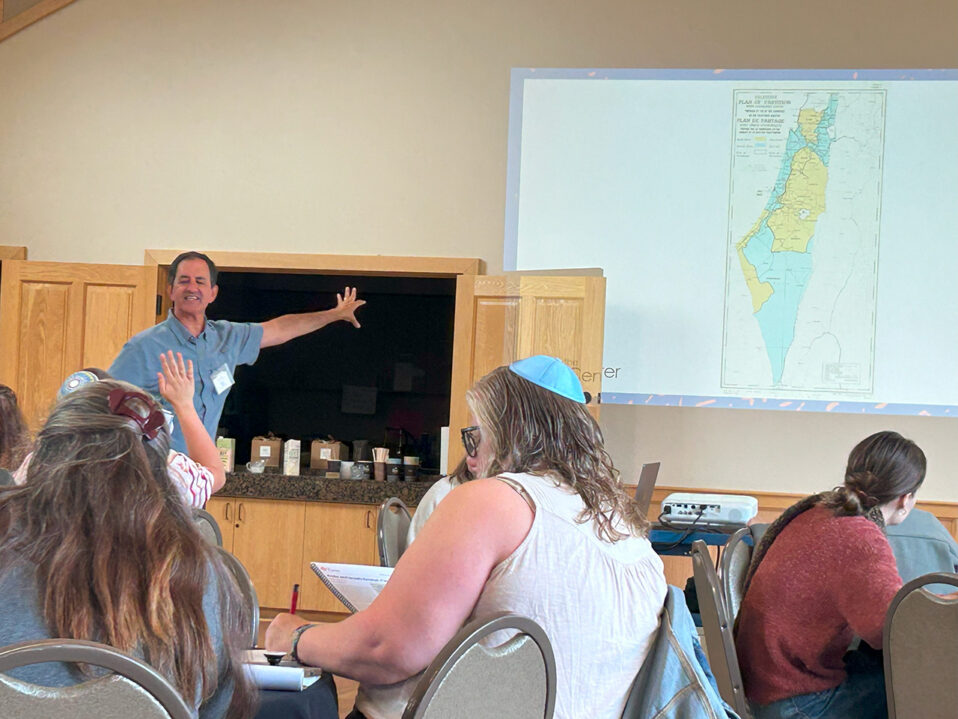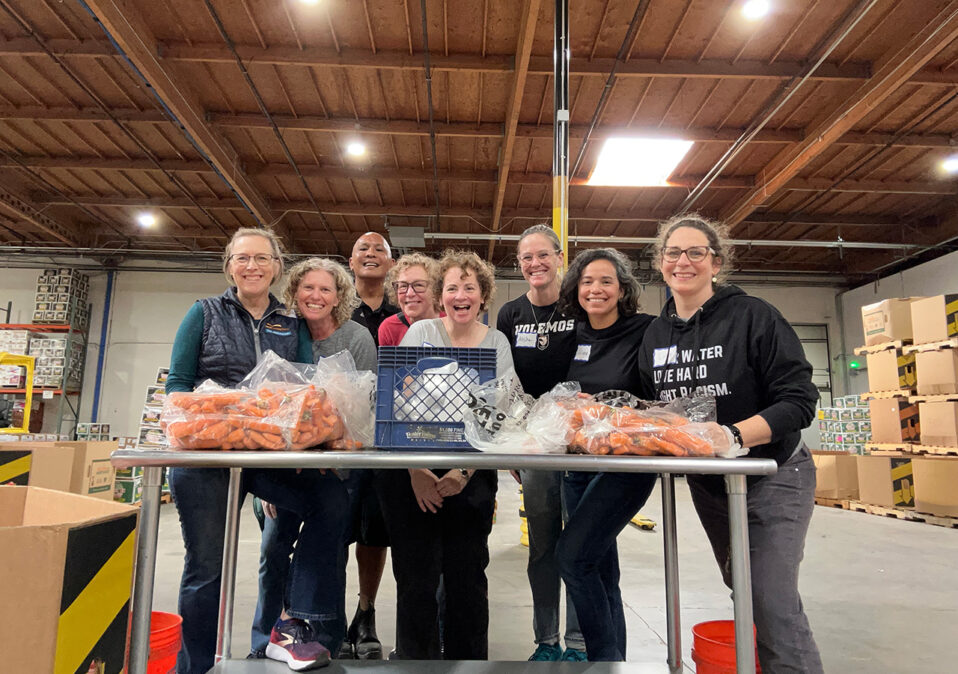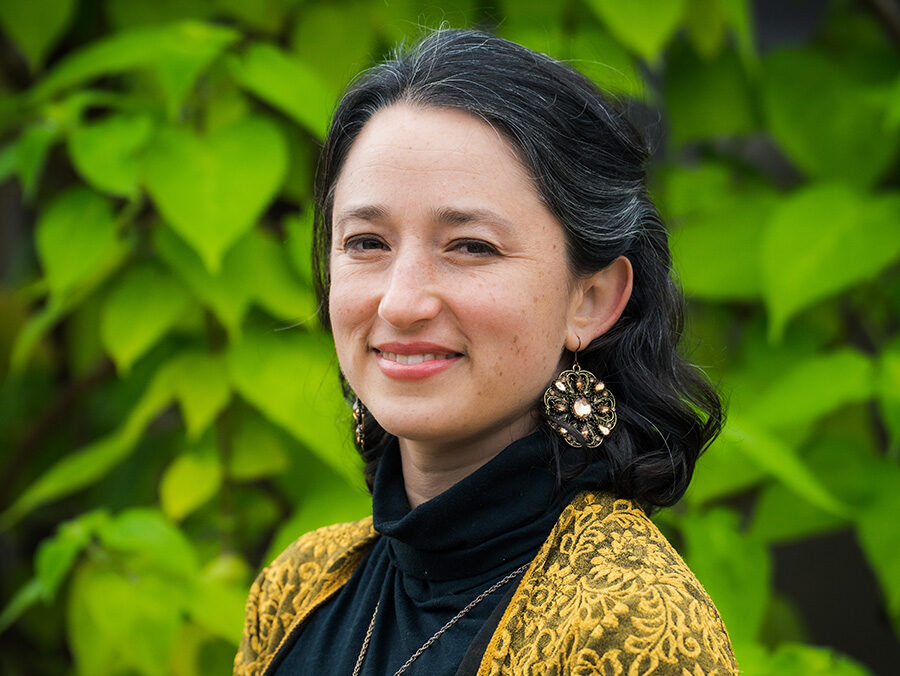How does one conjure the image of the consummate adult educator of our generation, Rachel Brodie? I imagine paying homage to the remarkable breadth and depth of her Torah learning, her skillful teaching techniques, and her invitation to everyone to be a teacher. But what really comes to mind is an elevator. She expanded the ranks of Jewish educators one elevator trip at a time (seriously and literally). During her years as Chief Jewish Officer at the JCCSF, Rachel took thousands of these journeys with hundreds of staff members — engaging all of us as learners and educators.
In riding the JCC elevator with Rachel, one realized three fundamental truths at the exact same time:
First, Nothing is/need be ordinary (Mikadesh Hol מקדש חול)
Paraphrasing my teacher, the vast majority of our lives is spent wandering in a desert, Exodus-style, with sand between our toes not knowing exactly where we’re going. Accept that Jewish tradition may care more about how you are day-to-day than whether you go to synagogue on Yom Kippur. So every elevator ride with the preschooler stretching to press the 2nd Floor button for the first time or with the newcomer visiting our classrooms or art gallery was a platform to see and bring appreciation to the extraordinary everyday stuff of life. So every staffer was an educator with the potential to affect someone else for the better.
Second, Translation matters (Drash דרש)
The one rule of learning Torah with Rachel Brodie? Check the translation. Or in the vernacular of a favorite movie, “I do not think (that word) means what you think it means”. Rachel opened our eyes to the myriad interpretations packed into our texts. I can hear her exhortations to “Read the Babel story again, What do you notice? What words are repeated? What choices did the translator make and why?”. What story do these texts tell?
She was a master translator bridging Hebrew and English, expansive and conventional Jewish worldviews, and of course New York speedtalk to Berkeley casual chat. In that elevator, she asked her nascent educators to pay attention to not only what needed interpretation (e.g. a flyer about Shabbat or a sign), but also to what the person standing with you might need to make meaning. What stories are encoded in our building and in our community?
Third, Positive change is possible (Tikkun תקון )
Never one to accept a trite phrase or superficial response, Rachel asked her colleagues to join her in an expansive unpacking of tikkun separately from its constant companion, olam. Using a beautifully illustrated visual diagram of the Hebrew root taf-koph-nun, Rachel spun out the many possibilities for understanding this core Jewish concept. Yes, it could mean repair the world but also adjust or tune over time as in an instrument or person, and also big structural change as in the takanah delegitimizing polygamy. But Rachel’s favorite was l’takein to adorn or beautify as in a bride. How lucky were we to experience how she could make delightful … ideas, rituals, and the tradition. She invited us to welcome change in its variously lovely forms. In that elevator, we could be change agents for ourselves, the people we interacted with, and the Jewish world we cared about.
What I would give for another elevator ride accompanying Rachel as she focused her attention — her love — on the people around her and the tradition that nurtured her.
Marci Glazer was CEO of the JCCSF from 2014–2021. And because of, in spite of, and in honor of Rachel Brodie, will be a Jewish learner for life or at least until the end of this daf yomi cycle on July 7, 2027.






